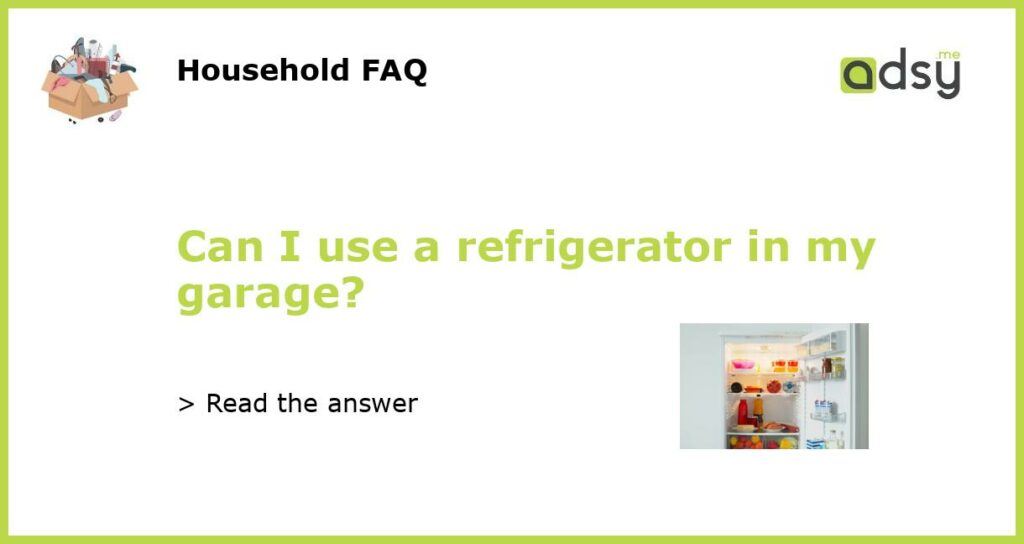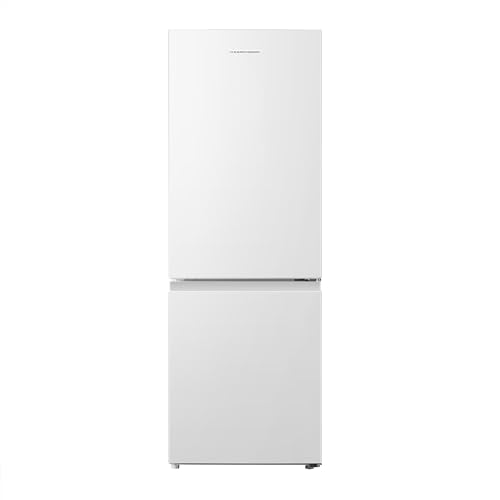Yes, you can use a refrigerator in your garage
Many people wonder if it is possible to use a refrigerator in their garage, and the answer is yes. However, there are a few things to consider before bringing your fridge out to the garage. In this article, we will explore the factors that you need to keep in mind when using a refrigerator in your garage. So, let’s dive in!
Temperature Considerations
One of the most important factors to consider when using a refrigerator in your garage is the temperature. Refrigerators are designed to operate in a temperature-controlled environment, typically around 60-95°F (16-35°C). If the temperature in your garage falls below or rises above this range, it can cause the refrigerator to malfunction.
If you live in an area with extreme temperatures, such as a very cold winter or a scorching hot summer, you may need to take extra precautions. Some refrigerators are specifically designed to handle a wider temperature range, so look for models that are built for garage use.
Insulation and Ventilation
Another important factor to consider is the insulation and ventilation in your garage. Proper insulation will help regulate the temperature inside the garage, keeping it closer to the desired range for the refrigerator. Additionally, adequate ventilation is necessary to dissipate heat generated by the fridge’s compressor.
If your garage lacks insulation or proper ventilation, you may need to make some modifications. This could include adding insulation to the walls and ceiling or installing a ventilation system to ensure sufficient air circulation. These modifications can help maintain a stable temperature and prevent your refrigerator from overworking itself.
Electrical Requirements
Before using a refrigerator in your garage, make sure that your electrical system can handle the extra load. Refrigerators require a dedicated circuit to ensure optimal performance and prevent electrical issues. If your garage does not already have a dedicated circuit, consult with a licensed electrician to have one installed.
Additionally, check the electrical specifications of your refrigerator to ensure it matches the available power supply. Some refrigerators have higher voltage or wattage requirements and may not be compatible with the electrical system in your garage.
Maintenance and Upkeep
Using a refrigerator in your garage may require some additional maintenance and upkeep. Since garages are often more dusty and prone to temperature fluctuations than indoor spaces, it’s important to regularly clean and maintain your fridge to keep it running smoothly.
Regularly dust the condenser coils and check for any signs of damage or wear. Keep the refrigerator clean and free of debris both inside and out. By taking these steps, you can ensure the longevity and efficiency of your garage refrigerator.
Taking Precautions
While it is possible to use a refrigerator in your garage, it is essential to take precautions to ensure its proper functioning. Consider the temperature, insulation, ventilation, electrical requirements, and maintenance needs before making your decision. If your garage does not meet the necessary conditions, it may be best to avoid using a refrigerator in that space.
By following these guidelines, you can enjoy the convenience of having a refrigerator in your garage without any issues. Always consult the refrigerator’s user manual for specific instructions and reach out to a professional if you have any doubts or concerns.




![COMFEE' RCD93WH1(E) A Under Counter Fridge, 93L Fridge with Cooler Box, Interior Light, Removable Glass Shelf, Reversible Door Hinge, Adjustable Legs, White [Energy Class F]](https://m.media-amazon.com/images/I/51SGR0VK5ZL.jpg)

